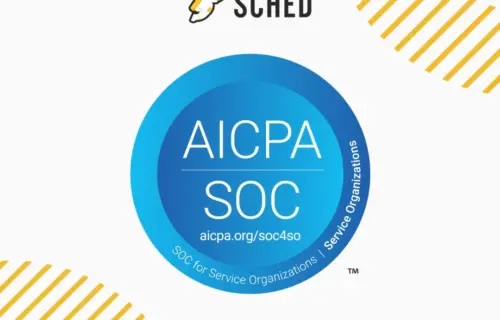Summary
- Audience-centric guest speakers: Understand your audience’s demographics, interests, and expectations to select guest speakers whose topics and presentation styles resonate with them, enhancing the overall impact and relevance of your event.
- Alignment with event objectives: Carefully align speakers with the theme and goals of your event, ensuring their messages are pertinent and engaging, thereby maximizing audience interest and retention.
- Engagement and interaction: Implement engagement strategies, such as Q&A sessions and interactive polls, especially for younger demographics like Generation Z, to maintain interest and promote active participation.
- Feedback and adaptability: Continuously collect and analyze audience feedback to refine future speaker selections and event formats, and remain adaptable to adjust presentations in real-time based on audience reactions.
- Utilizing digital platforms: Leverage online platforms and social media to identify and evaluate potential speakers, utilizing insights from these resources to make informed decisions about speaker invitations and expectations.
- Diversity and inclusion: Prioritize diversity in your speaker lineup to enrich the event experience with varied perspectives and enhance the cultural competence of your audience.
- Practical and strategic planning: Ensure logistical considerations, such as budget alignment and technical preparations, are managed efficiently, and maintain strong communication with speakers to ensure they are well-prepared and valued.
Choosing the right guest speakers is crucial to set the tone and engagement of your event. By understanding your audience’s demographics and interests, you can ensure the speakers resonate well, making each session captivating and relevant.
Imagine your event where speakers’ styles and topics are perfectly aligned with your goals, offering interactive elements that keep the audience engaged. This alignment isn’t just beneficial—it’s transformative, enhancing the entire experience.
Are you ready to elevate your events? By carefully selecting knowledgeable guest speakers who fit your audience’s needs, you can create an unforgettable event that not only entertains but also inspires. Let’s make your next gathering a standout success!
Book the best guest speakers by understanding your audience
Table of contents
Make Collecting and Analyzing Attendee Feedback Effortless from Sched Support on Vimeo.
Identifying audience demographics and preferences
- Demographic insights:
- Identify key demographic details such as age, gender, location, and profession of your target audience. Knowing these aspects helps tailor the content and style of your guest speakers to match the audience’s expectations and interests.
- Interests and expectations:
- Understand what topics and types of content resonate most with your audience. This could include preferences for digital content forms like videos or interactive sessions, which are particularly appealing to younger demographics such as college students.
Aligning guest speakers with audience needs
- Event theme and objectives:
- Define your event’s theme clearly and choose speakers who can best convey the underlying message or mission. This alignment ensures that the speaker’s content is relevant and engaging for the audience.
- Engagement strategies:
- Consider techniques to maintain audience engagement. For Generation Z, include elements like Q&A sessions, interactive polls, or small group discussions to enhance participation and attentiveness.
Utilizing effective communication techniques
- Content delivery:
- Use analogies, personal stories, and relevant examples to make complex topics relatable and understandable. Tailor your language and content to ensure clarity and maximize audience engagement.
- Authenticity and inclusivity:
- Speakers should strive for authenticity and inclusivity in their presentations. Use inclusive language, acknowledge diverse perspectives, and relate to current social movements that resonate with your audience.
Audience analysis and adaptation
- Continuous feedback:
- Gather and analyze feedback during and after the event to better understand audience reception and areas for improvement. This ongoing analysis helps in fine-tuning future events to better meet audience expectations.
- Adaptability:
- Be prepared to adapt the speaker’s message based on real-time audience reactions and interactions. This flexibility can significantly enhance the relevance and impact of the presentation.
Identifying potential guest speakers
Research and recommendations
- Utilize online platforms and guest speakers bureaus:
- Explore websites such as TED Talks, SpeakerHub, and the National Speakers Association to find guest speakers who have proven expertise and are recognized in their fields. Platforms like these often provide detailed profiles and reviews of speakers’ past engagements.
- Engage with social media and professional networks:
- Leverage social media platforms like LinkedIn and YouTube to observe potential speakers’ content and public engagement. This insight can be crucial in understanding their communication style and how well they might connect with your audience.
Internal resources and audience engagement
- Tap Into internal talent:
- Look within your own college or university for potential speakers, such as distinguished alumni, faculty, or standout students who can offer unique perspectives and inspire attendees.
- Audience input:
- Conduct surveys or polls to gather feedback from potential attendees on who they would like to hear from. This not only increases the relevance of the speaker selection but also boosts engagement by involving the audience in the decision-making process.
Evaluating the effectiveness of guest speakers
- Review past performances and credentials:
- Check the prospective guest speakers’ past presentations and any available recordings or reviews. This evaluation helps ensure that their message and delivery style align with the goals of your college event.
- Diversity and inclusion:
- Aim to include guest speakers from diverse backgrounds to enrich the event with a variety of perspectives. This not only reflects social responsibility but also broadens the appeal of the event.
Practical considerations
- Local and influential speakers:
- Consider local talent from business leaders to community figures who can draw in a crowd while minimizing logistical expenses. Also, identify influential figures in relevant fields who might attract a larger audience due to their prominence.
- Aligning speaker topics with event goals:
- Ensure that the guest speakers’ topics are not only of interest to the audience but also align with the broader themes and objectives of the event. This coherence is key to delivering a successful and impactful experience.
Engaging and securing guest speakers
Say Bye to Back-and-Forth Emails: Manage Speakers with Sched from Sched Support on Vimeo.
Define event goals and speaker criteria
- Clarify objectives:
- Determine the specific outcomes you want from your guest speaker, such as enhancing knowledge, motivating students, or providing unique industry insights.
- Budget considerations:
- Align speaker fees with your event budget, considering the potential ROI in terms of attendee satisfaction and event prestige.
Pre-event coordination
- Interview and confirm:
- Conduct pre-event interviews to finalize logistical details and review presentation content, ensuring alignment with event themes.
- Technical preparations:
- Arrange all necessary technical support and confirm the speaker’s requirements well in advance to avoid last-minute issues.
Building and maintaining relationships with guest speakers
- Regular communication:
- Keep in touch with the speaker leading up to the event, discussing any changes and confirming details to ensure they feel valued and prepared.
- Post-event follow-up:
- Express gratitude and discuss the event’s impact, fostering long-term relationships for future engagements.
Handling challenges
- Backup plans:
- Have alternative speakers and content ready to deploy in case of unexpected cancellations or technical difficulties.
- On-Site support:
- Ensure on-site technical staff are ready to handle any issues, maintaining event continuity and quality.
Leveraging guest speaker expertise
- Engage with educational content:
- Encourage speakers to connect with student organizations and faculty to tailor their presentations to real-time academic and institutional needs.
- Custom presentations:
- Work with speakers to develop customized content that addresses specific challenges and opportunities within the college environment.
Make it easy, make it professional: Elevate your Call for Speakers with our (FREE) purpose-built tool!

The above steps and necessities are a lot of hard work, and easy to get wrong. Your time is sacred, and your event is important.
That is why we developed our Call for Papers tool in response to the needs of event planners like you. The benefits of using our tool are simply too good to pass up.
- Super easy to use: create a professional and distinctive call-for-speakers page in just three simple steps. This not only saves you time but also ensures a polished and eye-catching presentation for potential speakers.
- Save hours of sifting through applications: Our software assesses the applications and presents you with a refined list of top candidates.
- Get better speakers: With the cream of the crop to choose from, your attendees will have a better experience.
Given the high demand for this feature, it’s crucial to secure your spot on the waiting list to ensure you don’t miss out on these valuable benefits.
join the waiting list and revolutionize your call for speakers process today!
The takeaways
Well, there you have it. How to book the best speakers.
You’re now ready to book talent that will make the difference to your attendees’ experience!
And you’re also now ready to try Sched for free!








